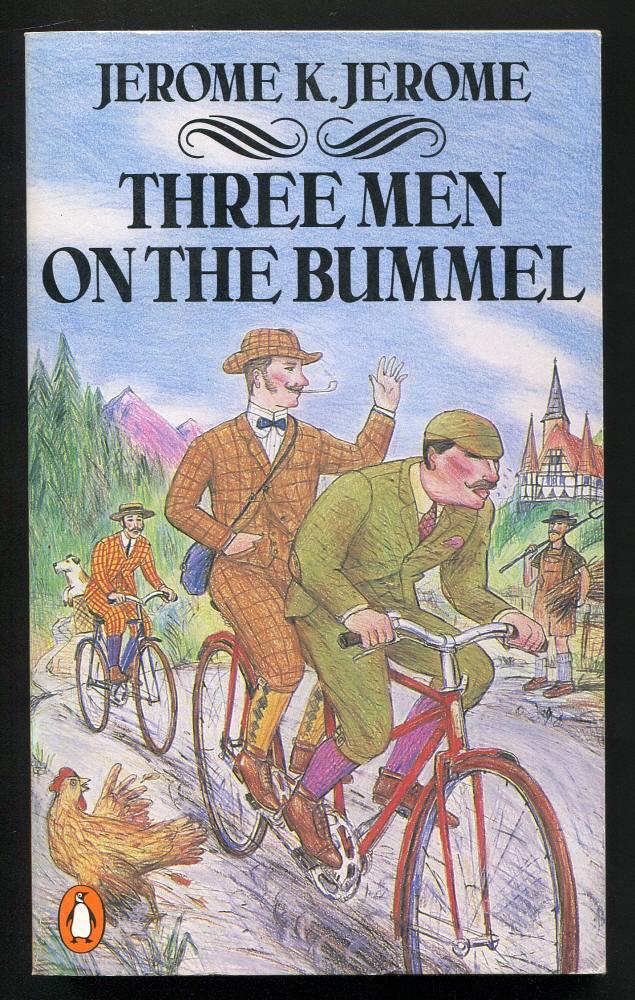'A "Bummel",' I explained, 'I should describe as a journey, long or short, without an end; the only thing regulating it being the necessity of getting back within a given time to the point from which one started.'
In this follow up to Jerome's Three Men in a Boat (which I discussed here), we find ourselves again in the company of J., George, and Harris. This time around they hit upon the idea of a bicycle trip in Germany, and we follow these three affable English chaps as they navigate their tour. As in its predecessor, J., a thinly fictionalised version of Jerome, casts a humorously insightful eye upon his travels, his companions, and their encounters.
Their travels in a foreign land mean the obvious observations with regard to cultural differences, language barriers, and the misunderstandings that follow. However, Jerome's observations are rarely cruel or pointed, instead his humour is more a gentle and warm poking in fun. In fact, Jerome writes of Germany and its people with warm regard. He describes the country so fondly that I found myself wondering how the book was considered in Britain only fifteen years after its original publication, when the first world war was heading into its second year - perhaps this is one of the reasons that this novel never achieved the popularity of Three Men in a Boat.
Three Men on the Bummel is just as well written and humorous as its predecessor, but it does lack the unifying thread that . . . in a Boat has, and hangs together a little more loosely because of that. However, in my opinion, this novel is still worth a read if you enjoy well written humorous books. As I said with regard to . . . in a Boat (see above for the link to previous blog post), there are parts of . . . on the Bummel which are outdated, but overall Jerome is a warm and humorous writer.
The Germans are a good people. On the whole, the best people perhaps in the world; an amiable, unselfish, kindly people. I am positive that the vast majority of them go to heaven. Indeed, comparing them with the other Christian nations of the earth, one is forced to the conclusion that heaven will be chiefly of German manufacture.
As I mentioned, it could very well be that passages such as these are what have kept this novel from achieving the recognition and success of Three Men in a Boat. Just fourteen years after publication, the first world war had commenced. And, before unease with all things German could settle very much, Britain was engaged in war with Hitler's Nazi Germany only twenty-one years after that. Jerome's warm regard for the country and its people couldn't stand up to that.
The only real problem with the novel is that it has to be compared to Three Men in a Boat. As stated already, the book is just as well written as its predecessor, it only lacks the unifying thread. Basically, the Thames provides a common thread throughout the first book, and the second hangs a little more loosely together without that. But, Jerome is a good writer, and delivers a novel otherwise as well written as . . . in a Boat.
If you would like to join J., George, and Harris on their tandem plus one, as they cycle the Black Forest, you can purchase Three Men in a Boat and Three Men on the Bummel here, from Bookshop.org, who support independent bookshops.
If you found this piece interesting, or at least enjoyable, please consider supporting me over at ko-fi, it keeps me writing and blogging. And, it's very much appreciated. Thank you in advance.
Read lots of books, go for long walks, and be good. See you soon.

No comments:
Post a Comment